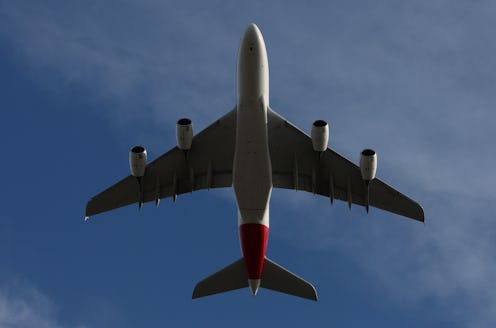
On Tuesday, the U.S. Department of Homeland Security announced that it is indefinitely banning U.S.-bound travelers from eight countries from bringing electronics on board, excluding their cell phones. This announcement is highly impactful, as dozens of flights arrive into the United States every day from the majority-Muslim countries and airports delineated in the ban.
The Guardian first reported that an electronics ban might be forthcoming, revealing on Monday that a confidential email from the TSA indicated that passengers flying directly to the United States from designated countries would not be allowed to bring any large electronic devices on board in their carry-on luggage and would instead be required to check these devices. Large electronic devices include laptops, tablets, e-readers, travel printers, large electronic games, and cameras, among others. Cellphones and approved electronic medical devices are still allowed in the cabin of the plane.
The ban impacts 10 airports in eight countries in the Middle East and North Africa. According to the Associated Press, these countries and airports include: Cairo in Egypt; Amman in Jordan; Kuwait City in Kuwait; Casablanca in Morocco; Doha in Qatar; Riyadh and Jeddah in Saudi Arabia; Istanbul in Turkey; and Abu Dhabi and Dubai in the United Arab Emirates.
While the ban is not a public regulation, airlines in the affected countries that fly directly to the United States are expected to enforce the ban and ensure their passengers comply. ABC News reports that nine international airlines in total are affected by the ban. No American airlines carriers are affected by the ban, as none fly directly into the United States from the airport listed in the ban.
According to a report from CNN published before the ban was officially announced, the new electronics ban stems from a "terrorist threat," which an unnamed U.S. official described as related to al Qaeda in the Arabian Peninsula (AQAP). The official also indicated that intelligence acquired during a raid in Yemen in January might have contributed to the decision to move forward with the ban.
However, according to the New York Times, during a briefing on the ban, "Homeland Security officials did not cite specific intelligence suggesting that terrorist groups were planning imminent attacks as a reason for the new policy. Rather, they said the change was based on intelligence reports about extremist groups that have an ongoing interest in staging attacks against American aviation targets."
Evidently, this ban, which will be implemented over the next 96 hours, will rapidly affect thousands of passengers traveling to the United States, who will now be required to place their electronic devices in the cargo hold. According to aviation expert Jeffrey Price of Metropolitan State University of Denver via the Associated Press, beyond inconvenience this requirement could also have several additional downsides, including increased propensity for luggage theft and increased possibility of fires in the cargo hold due to the presence of electronics batteries.
As the ban begins to be enforced over the next several days, passengers should certainly keep an eye out for updates and clarifications if they are traveling to the United States from one of the affected airports.